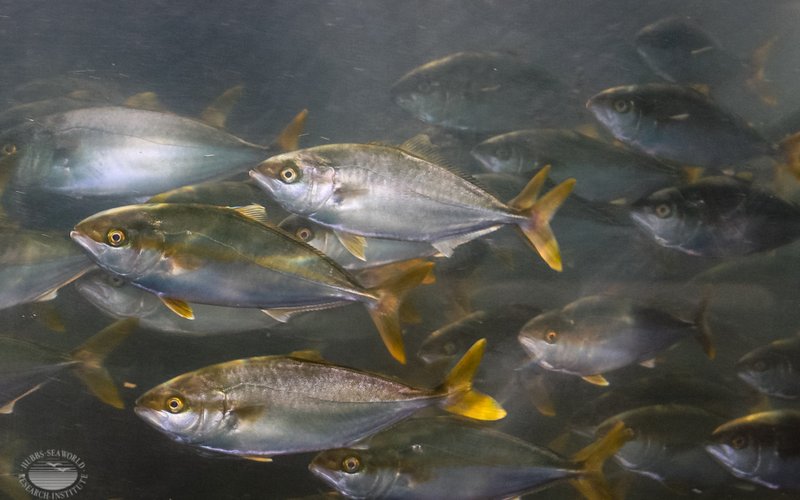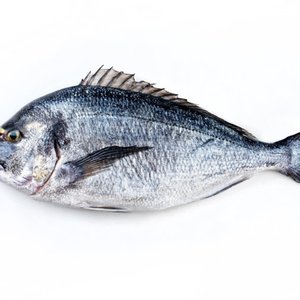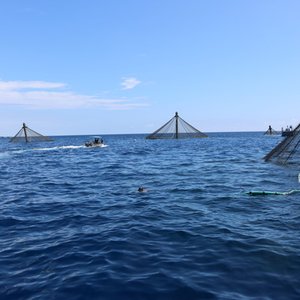A new study led by scientists at Hubbs-SeaWorld Research Institute (HSWRI) in San Diego, California, showed that omega-3-rich algae oil can successfully replace fish oil in the diet of farm-raised juvenile California yellowtail (Seriola dorsalis) without compromising growth or survival. The results also revealed that algae oil can produce fish with levels of DHA and EPA roughly three times higher than in fish fed fish oil. These findings put scientists steps closer to growing healthier and more sustainable seafood by replacing wild-caught fish in aquaculture feed.
“These results show the potential for this species to be reared on fishmeal and fish-oil free diets,” said Kevin Stuart, a research scientist at HSWRI and lead author of the study. “More research needs to be done to make these diets cost-effective for growers, but the potential is there to advance sustainable aquaculture.”
In HSWRI’s 64-day feeding trial, researchers tested three diets formulated without wild fish ingredients against a control diet—containing fishmeal and fish oil—on juvenile California yellowtail. Upon completion of the study, fish were analyzed for general body composition (moisture, protein, fiber and ash content) and fatty acid levels in their tissue to evaluate the fish growth and fillet quality of each diet.
Researchers found significantly higher DHA-EPA fatty acid levels in fish fed the diet containing Veramaris® marine algal oil. These results show that Veramaris® natural marine algal oil can fully replace fish oil in the diet of juvenile California yellowtail without affecting growth or survival and, at the same time, provide higher levels of DHA and EPA. In previous studies on Pacific white shrimp (Litopenaeus vannamei), channel catfish (Ictalurus punctatus), rainbow trout (Oncorhynchus mykiss) and Atlantic salmon (Salmo salar), scientists have observed similar or better growth and higher levels of omega-3 fatty acids in fish fed algal oil when compared to those fed fish oil.
Although the diets free of wild fish ingredients in this study resulted in slower fish growth than the fishmeal-fish oil control diet, the pattern of growth—600% increase in weight during the study—was still excellent and suggests a strong potential for full fishmeal-fish oil replacement for this species with continued research, said the authors.
Aquaculture will require an estimated 37.4 million tons of feed by 2025 to meet the global demand for farmed seafood. With wild fish populations declining worldwide, more “fish-free” ingredients in aquaculture feeds will be required to meet future seafood demand and enhance sustainability.
Check out the study here.













